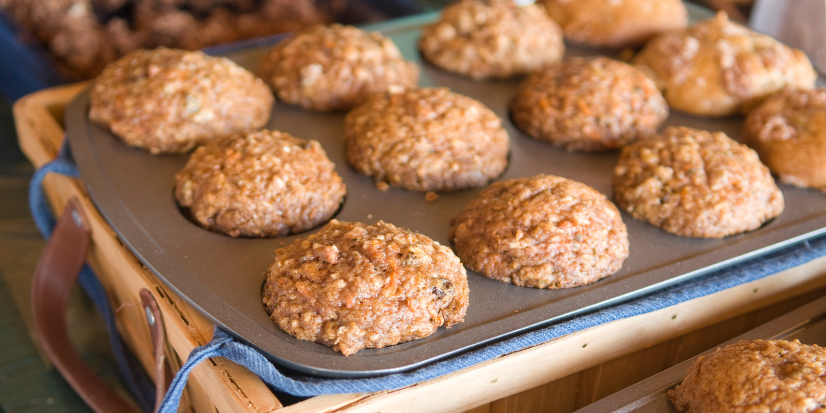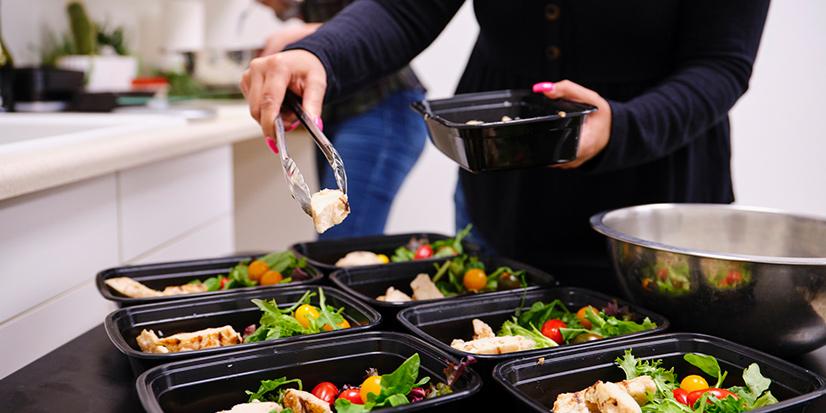
Believe it or not, peri-training nutrition (before, during, and after a workout) is just as important as the actual workout itself, especially when seeking changes to body composition and increased energy levels. Fueling your body with high-quality foods will allow you to optimize your training sessions. Think of your body as a high-performance machine, similar to a Ferrari, you wouldn’t fill it up with regular gas, would you? Of course not, you’d fill up with premium fuel! To optimize performance your body requires the same level of quality fuel, which comes from premium, nutrient-rich foods. Read on to find out why your body needs premium fuel sources when to fuel, and how much fuel your body requires to perform at its best.
5 Nutrition Tips to Power Performance
- Drink at least half your body weight of pure water in ounces per day. So, 150 lbs of body weight = 75 oz of water.
- Avoid high-fat, processed, fried, or fast food before and after exercise.
- Prepare or purchase your favorite pre-and post-workout snacks at the beginning of each week so that you always have something on hand for training days.
- Avoid sugar alcohols and chicory root fiber, found in certain protein and fiber bars, and even in brands of Greek yogurt, as these may lead to bloating, abdominal pain, and gas.
- If high fiber foods give you unpleasant symptoms (gas, bloating) while training, stick to refined grains or lower fiber foods before exercise (i.e. white instead of whole wheat bread).
Pre-Exercise: Fuel Up
Why: Fueling with the right foods before a workout allows you to train longer and at a higher intensity. Pre-workout nutrition leads to improved performance, faster recovery, and better results.
When: 30-60 minutes before training
How Much: 15-30 g carbohydrates and 5-15 g protein
What:
60 minutes prior to a workout:
- Half of a peanut butter & jelly sandwich
- 1 cup of cooked oatmeal or dry cereal + low-fat milk
- Half of a turkey sandwich
45-60 minutes prior:
- 1 cup of Greek yogurt + 1 Tbsp honey
- 1 cup of 2% cottage cheese + ½ cup of pineapple chunks
30-45 minutes prior:
- A handful of trail mix
- 1-3 dates +1 Tbsp of natural peanut butter
- 1-2 energy balls
- A medium banana + 1 Tbsp of natural peanut butter
TIP: It can be tough to stomach whole foods closer to a training session (15-30 minutes before). In this case, you may want to choose a liquid option such as a pre-workout shooter containing ½ scoop whey protein + 8 oz 100% fruit juice or sports drink.
Post-Exercise: Re-Fuel, Re-Build & Re-Hydrate
Why: When you train or compete, your body is essentially breaking itself down. Your energy stores are running low, you are dehydrating yourself and you are breaking down muscle tissue. Because of this, post-workout nutrition is a critical time to shift your body from breakdown mode (catabolism) to re-building mode (anabolism), so that you wake up the next day feeling stronger and more energized than the previous day.
When: To optimize recovery, you should consume a post-workout snack or meal immediately after finishing your training session. Try to consume a combination of carbohydrates and protein within 30 minutes of finishing.
How Much: Aim for a 2:1 or 3:1 ratio of carbohydrates to protein. This will be based on your body weight, as well as the duration and intensity of your workout. For most people, 15-45 grams of protein and 30-90 grams of carbs will provide the fuel and building blocks to maximize recovery potential.
- For short, low to medium intensity workouts a 2:1 ratio
- For longer, harder sessions a 3:1 ratio (you’ll need the extra carbs to refuel your body when training is more intense)
What:
- 16 oz. low-fat chocolate milk (20 g protein, 60 g carbs)
- 2 slices 100% whole wheat bread + 2 Tbsp natural peanut butter (18 g protein, 44 g carbs)
- 1 cup mixed berries +1 cup non-fat plain Greek yogurt + 1 Tbsp honey (23 g protein, 42 g carbs)
- 1 cup unsweetened almond milk + 1 medium banana + 1 scoop whey protein ( 17g protein, 28 g carbs)
- 1 cup 100% fruit juice + 1 scoop 100% whey protein (24 g protein, 56 g carbs)
- 1 wheat English muffin + 2 eggs (19 g protein, 30 g carbs)
- 1 cup low-fat cottage cheese + 1 cup pineapple chunks (28 g protein, 46 g carbs)
TIP: If you are following a reduced or moderate carbohydrate diet, you will still want to include a carbohydrate source post-workout, especially after an intense training session. Research shows that post-workout carbohydrate helps prevent muscle breakdown and actually helps promote muscle protein synthesis. Adding in carbohydrates can be as simple as adding a cup of frozen berries or banana to your protein shake.
They say – “you are what you eat.” Remember, you cannot out-exercise a bad diet!







